QuestionHi Mark,
Hope that you will help me.
I found a turtle about half a year ago in the park (perhaps somebody threw him out). In the beginning he was very active, had good appetite. Last two week he is not himself. First of all, he eats less, sleeps all the time, and today I`ve noticed that his eyes are very wet (he didn`t have that before!). I`m wondering what is going on with him?
And also his shell seems to become pale (though maybe it just seems to me, I`m not sure).
I live in Kazakhstan and unfortunately turtles as pets are not taken seriously in this country, so there are no vets that can give me proper advise. Maybe you know what shall I do to bring him back to the state that he was in before.
He is around 15 cm in diameter.
Conditions that he has: it`s big plastic box (1m x 0,7m x 0,3m; in summer time we double the size by connecting two of these boxes together by bringe),box is equiped with a small house where he can hide, smooth rocks, before we were putting wood chips in it, recently we started to put soil, has UVB+UVA lamp, temperature is around 28 degrees.
Nutrition: eats only lettuce and cabbage (hates apples, cucumbers, tomatoes), in summer time we give him dandelions, clover. Recently started to add to his food special vitamins and minerals for turtles.
Thank you in advance.
AnswerThe watery eyes can be one of three main things:
- dehydration. Russians like variable climates, but indoors the humidity is often too dry. One good way to offer a better humidity is to use a mix of about 50% (by wieght) good clean soil, shredded bark, sphagnum moss, or a mix of these, and 50% (by weight) of clean playground type sand. Dampen the mix and keep it damp, but not wet.
- Infection, anything from a minor bug like a common Respiratory Infection, to a real problem like Herpesvirus- which is almost impossible to treat at home. Boost the temps in the warm end a bit, and make sure it is getting good food and vitamin supplements to boost the immune system.
- Diet related. Cabbage is low in iodine and other nutrients, and head or light green lettuces are low in almost all nutrients. I think this is why he appears pale to you. Russians need a rather dry, fiberous diet. In captivity, we usually use a lot of Timothy or sweet hay (not too much alfalfa), dandelion greens, turnip greens, dark leafy greens, etc.
I think you are doing OK, but a few things need a little tweaking. Try these sites for ideas:
- http://www.russiantortoise.org
- http://www.tortoisetrust.org
Good luck!

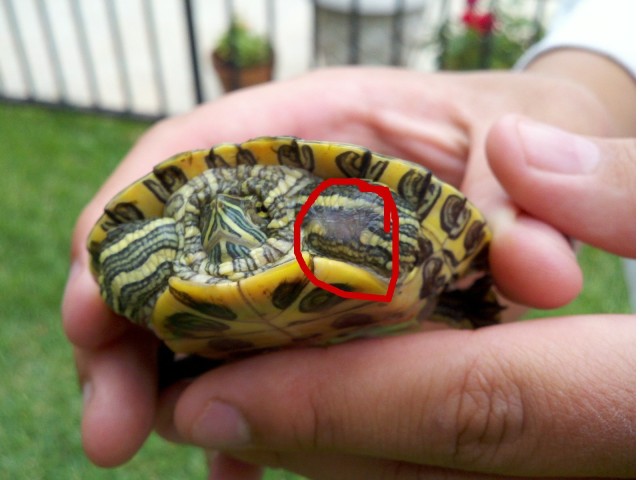 red slider turtle grey spot on arm/elbow
QuestionQUESTION: we have a five year old red slider th
red slider turtle grey spot on arm/elbow
QuestionQUESTION: we have a five year old red slider th
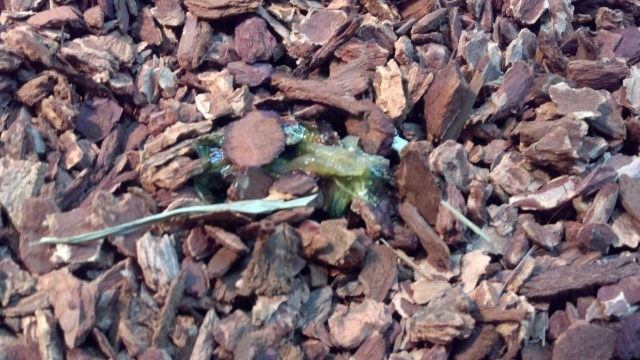 Dead tortoise
Question
Tortoise vomit? Dead tortoise
Abo
Dead tortoise
Question
Tortoise vomit? Dead tortoise
Abo
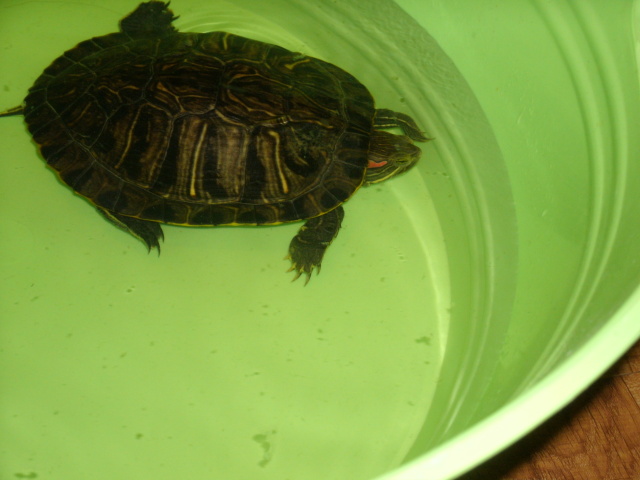 What type of turtle is this?
Question
Turtle1
I came home from work and to my surpri
What type of turtle is this?
Question
Turtle1
I came home from work and to my surpri
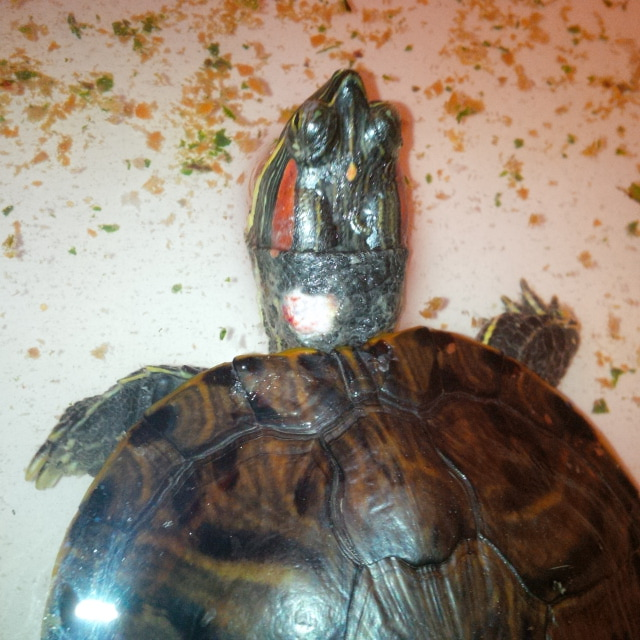 Turtle Skin Sore
Question
turtle
Hi,
I have two red eared slider
Turtle Skin Sore
Question
turtle
Hi,
I have two red eared slider
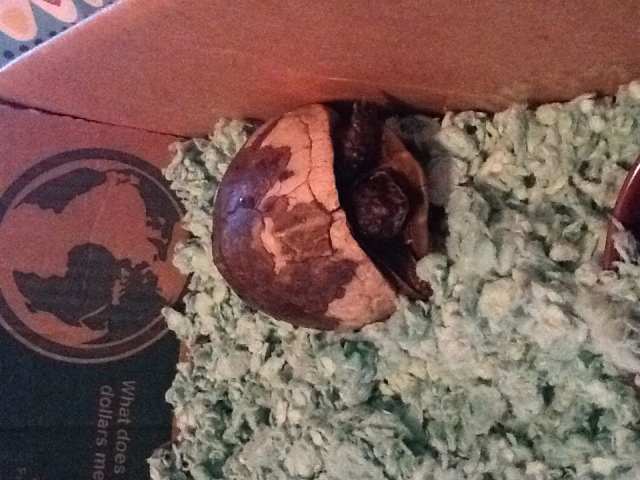 tortoise not eating
QuestionQUESTION: my turtle is not eating and its Febru
tortoise not eating
QuestionQUESTION: my turtle is not eating and its Febru